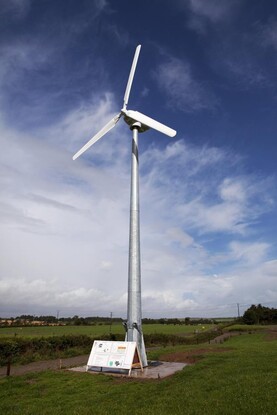There are fears that a new requirement in the next CAP to define and map peatlands and wetlands will create a two-tier payment system for farmers.
As part of more stringent cross compliance, an additional Good Agricultural and Environmental Condition (GAEC) will be introduced from 2023. GAEC 2 will dictate that there must be appropriate or minimum protection of carbon-rich soils. To facilitate these new rules, a carbon-rich soil will have to be defined.
All Irish farms will then have to be mapped and land parcels distinguished as peatlands and wetlands or mineral soils.
Those receiving payments on soils mapped as carbon-rich will have to meet a different set of standards to other farmers.
There are approximately 300,000ha of peatland under agricultural use.
EU member states will be asked to devise a set of management practices for farmers to meet GAEC 2’s protection requirements. Failure to meet these requirements would make land ineligible for direct payments.
Grassland maintenance, a ban on draining land and a ban on burning peatland are considered as a minimum and appropriate protection in the eyes of the European Commission.
Farmers would be asked to carry out further actions to qualify for payment under eco-schemes and agri-environmental schemes.
Rewetting peatland soils is considered as one such additional measure.
Member states will have discretion to set the bar for compulsory requirements to receive a direct payment and the additional practices that attract a further payment.
However, there are major concerns that tying CAP payments to soil type will result in those farming in marginal areas losing out.
The move was branded as “unprecedented in the history of the CAP” by Irish Natura and Hill Farmers Association (INHFA) president Colm O’Donnell at a recent Oireachtas agriculture committee meeting.
O’Donnell said even farmers who meet the requirements of GAEC 2 would be ineligible for payment, as their lands would not comply with the “minimum agricultural activity” clause elsewhere in the regulations.
He said that while a derogation has been offered to avoid this situation, there was no guarantee such a facility would be available in the longer term.
Read more
Rewetting bogs has potential to improve drinking water quality - report
Bogs and wetlands to be included in emission counting
There are fears that a new requirement in the next CAP to define and map peatlands and wetlands will create a two-tier payment system for farmers.
As part of more stringent cross compliance, an additional Good Agricultural and Environmental Condition (GAEC) will be introduced from 2023. GAEC 2 will dictate that there must be appropriate or minimum protection of carbon-rich soils. To facilitate these new rules, a carbon-rich soil will have to be defined.
All Irish farms will then have to be mapped and land parcels distinguished as peatlands and wetlands or mineral soils.
Those receiving payments on soils mapped as carbon-rich will have to meet a different set of standards to other farmers.
There are approximately 300,000ha of peatland under agricultural use.
EU member states will be asked to devise a set of management practices for farmers to meet GAEC 2’s protection requirements. Failure to meet these requirements would make land ineligible for direct payments.
Grassland maintenance, a ban on draining land and a ban on burning peatland are considered as a minimum and appropriate protection in the eyes of the European Commission.
Farmers would be asked to carry out further actions to qualify for payment under eco-schemes and agri-environmental schemes.
Rewetting peatland soils is considered as one such additional measure.
Member states will have discretion to set the bar for compulsory requirements to receive a direct payment and the additional practices that attract a further payment.
However, there are major concerns that tying CAP payments to soil type will result in those farming in marginal areas losing out.
The move was branded as “unprecedented in the history of the CAP” by Irish Natura and Hill Farmers Association (INHFA) president Colm O’Donnell at a recent Oireachtas agriculture committee meeting.
O’Donnell said even farmers who meet the requirements of GAEC 2 would be ineligible for payment, as their lands would not comply with the “minimum agricultural activity” clause elsewhere in the regulations.
He said that while a derogation has been offered to avoid this situation, there was no guarantee such a facility would be available in the longer term.
Read more
Rewetting bogs has potential to improve drinking water quality - report
Bogs and wetlands to be included in emission counting






 This is a subscriber-only article
This is a subscriber-only article









SHARING OPTIONS: